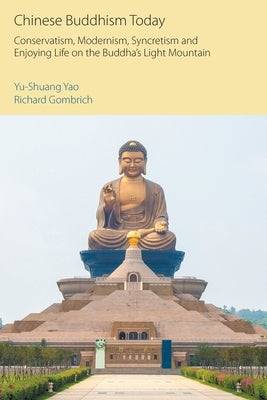Description
This book conveys the ethos of Fo Guang Shan, 'Buddha's Light Mountain', by focusing on the views and activities of its founder and leader, the Ven. Hsing Yun.
Fo Guang Shan was founded in Taiwan in 1967 by Hsing Yun (b.1927), who had fled to Taiwan from mainland China in 1949. It stands in the Chinese tradition of Mahāyāna Buddhism and, more specifically, is a form of Buddhism which in English is usually referred to as 'Humanistic Buddhism' or as 'engaged Buddhism'.
Humanistic Buddhism owes its origin to the Chinese monk Tai Xu (1890-1947). He found the Buddhism that surrounded him in China dreary and moribund, preoccupied with rituals for the dead, and offering nothing to help or guide people living in the world outside monasteries. His determination to reverse this decay centred on the idea that it was the vocation of a Mahāyāna Buddhist to do good to others, finding their own spiritual benefit in benefitting society.
Hsing Yun has been a devoted disciple of Tai Xu. It is telling that he founded a seminary before he founded a monastery, and has laid huge emphasis on education. To make Buddhism widely attractive and relevant he has incorporated every influence available. Gifted with a benign personality, he has turned his seemingly boundless energy and prodigious versatility to creating an institution that presents Buddhism as a potential source for benefitting society through making life enjoyable.
Author: Yu-Shuang Yao, Richard Gombrich
Publisher: Equinox Publishing (UK)
Published: 06/13/2022
Pages: 140
Binding Type: Paperback
Weight: 0.61lbs
Size: 9.21h x 6.14w x 0.39d
ISBN13: 9781800502321
ISBN10: 180050232X
BISAC Categories:
- Religion | Buddhism | General (see also Philosophy | Buddhist)
This title is not returnable

